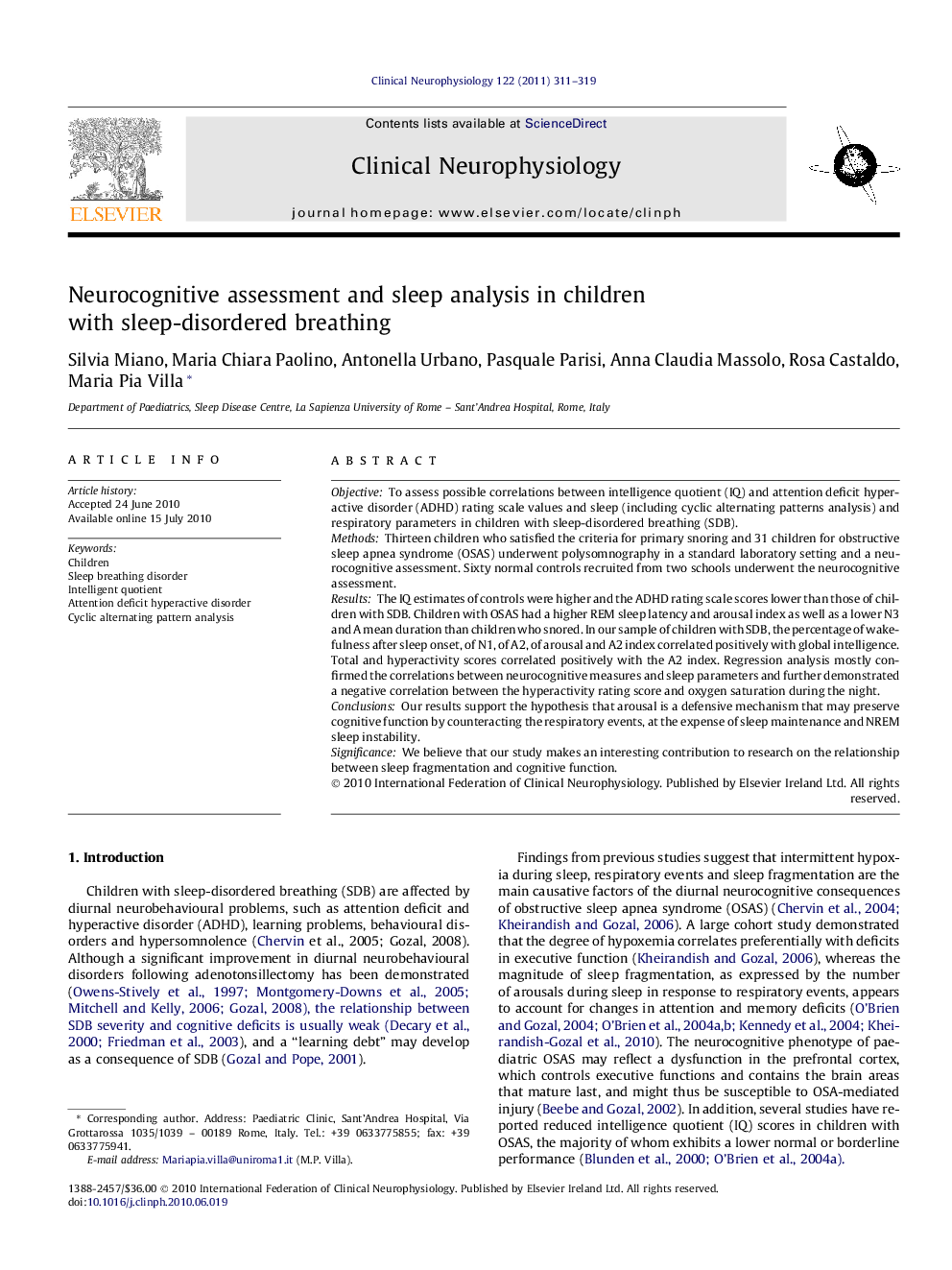| Article ID | Journal | Published Year | Pages | File Type |
|---|---|---|---|---|
| 3044983 | Clinical Neurophysiology | 2011 | 9 Pages |
ObjectiveTo assess possible correlations between intelligence quotient (IQ) and attention deficit hyperactive disorder (ADHD) rating scale values and sleep (including cyclic alternating patterns analysis) and respiratory parameters in children with sleep-disordered breathing (SDB).MethodsThirteen children who satisfied the criteria for primary snoring and 31 children for obstructive sleep apnea syndrome (OSAS) underwent polysomnography in a standard laboratory setting and a neurocognitive assessment. Sixty normal controls recruited from two schools underwent the neurocognitive assessment.ResultsThe IQ estimates of controls were higher and the ADHD rating scale scores lower than those of children with SDB. Children with OSAS had a higher REM sleep latency and arousal index as well as a lower N3 and A mean duration than children who snored. In our sample of children with SDB, the percentage of wakefulness after sleep onset, of N1, of A2, of arousal and A2 index correlated positively with global intelligence. Total and hyperactivity scores correlated positively with the A2 index. Regression analysis mostly confirmed the correlations between neurocognitive measures and sleep parameters and further demonstrated a negative correlation between the hyperactivity rating score and oxygen saturation during the night.ConclusionsOur results support the hypothesis that arousal is a defensive mechanism that may preserve cognitive function by counteracting the respiratory events, at the expense of sleep maintenance and NREM sleep instability.SignificanceWe believe that our study makes an interesting contribution to research on the relationship between sleep fragmentation and cognitive function.
